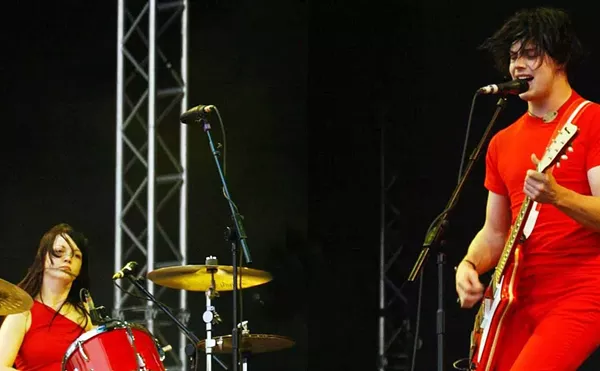
Audio By Carbonatix
[
{
"name": "GPT - Leaderboard - Inline - Content",
"component": "35519556",
"insertPoint": "5th",
"startingPoint": "3",
"requiredCountToDisplay": "3",
"maxInsertions": 100,
"adList": [
{
"adPreset": "LeaderboardInline"
}
]
}
]
Think of this as the year of the keyboard, in which a bumper crop of luscious jazz pianists fills the bins at your local record mart. After recent CD triumphs by Marilyn Crispell (Amaryllis), Brad Mehldau (on two from Charles Lloyd, The Water is Wide and the forthcoming Hyperion with Higgins) and Jason Moran (last year’s Facing Left and on the new Greg Osby, Symbols of Light: A Solution), here comes a fresh disc from that master of rhythmic subtlety and phrasing, Gonzalo Rubalcaba.
Supernova departs slightly from the format of Rubalcaba’s previous Blue Note project, Inner Voyage (where he sounds, as a friend put it recently, "like a hip Bill Evans," in that he applies lyricism with a more muscular, blues-conscious touch). Inner Voyage was a revelation to those who had always associated Rubalcaba with fire and flash, since he showed himself capable of the most breathtaking tenderness and ballad consciousness, delivered with deep feeling and an almost subliminal sense of swing.
Supernova incorporates both Rubalcaba personalities, being more percussively rhythmic (definitely more Latin) than Inner Voyage, but still as sensitive. The title cut, offered in different tempos on tracks one and six, starts with block chords and a hammering beat that transmutes every few bars into swaying salsa. Track two, "El Cadete Constitucional (The Constitutional Cadet)," transports us to a debonair tearoom for the cross-pollination of a military march with a romantic dance hall number. It seems like a joke until the trio (with Carlos Henriquez, bass, and Ignacio Berroa, drums) pumps up the clave for the solos, which Rubalcaba delivers picante on acoustic and electric keyboards.
"Alma Mia (Soul of Mine)" takes us to a heartfelt realm of light where there’s time to embrace and listen to the silence. Then the sublime "La Voz Del Centro (The Voice in Between)" opens with such stunningly understated drama as to seem like the tender trap that Rubalcaba has been leading us to all along. Moving with an inexorable sense of purpose, like a rendezvous with fate, it’s a tune that’s nevertheless careful to breathe and take a good look around as it goes where it must.
It’s enough to say about the remaining five cuts that they’re an intense, extended pleasure best left to the listener’s own discovery. But in the closing piece, "Oren (Pray)," Rubalcaba achieves transcendence with a melody that’s both commercial (populist) and profoundly emotional. There’s a folksong quality to it, like a political anthem on a rhythmic base with tribal echoes. It’s a prayer for all of us.
George Tysh is Metro Times arts editor. E-mail him at gtysh@metrotimes.com.





